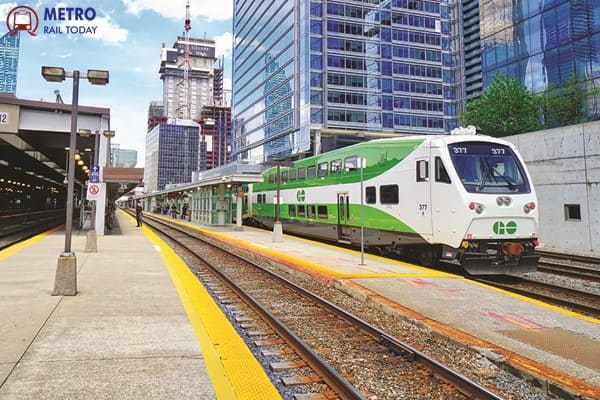 Ireland approves 18.8 km Dublin Metro Link Project after decades-long wait
Ireland approves 18.8 km Dublin Metro Link Project after decades-long wait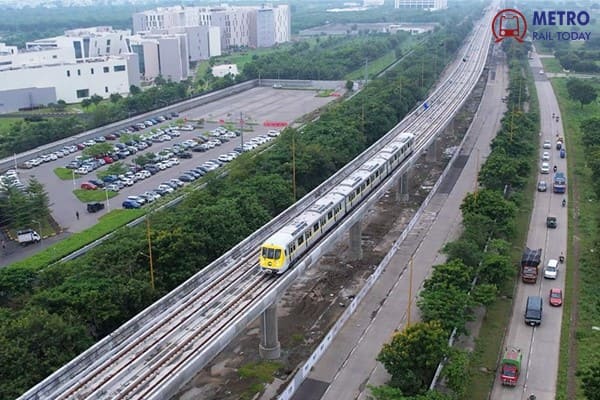 ADB approves $190 Million Loan for Indore Metro Rail Project to boost Urban Mobility
ADB approves $190 Million Loan for Indore Metro Rail Project to boost Urban Mobility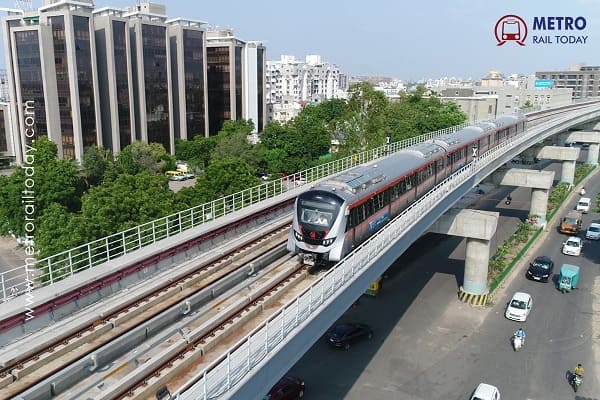 Gandhinagar Metro extends Trial Run from Sachivalaya to Mahatma Mandir
Gandhinagar Metro extends Trial Run from Sachivalaya to Mahatma Mandir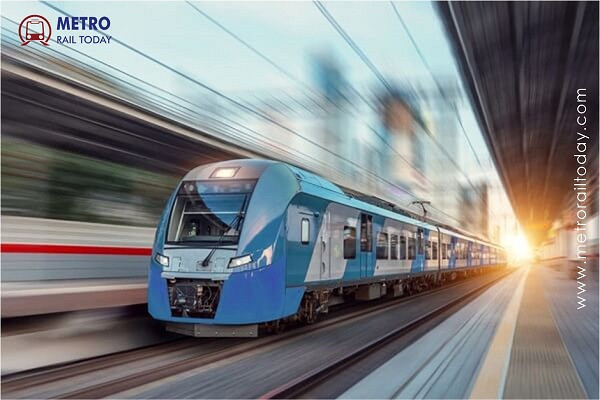 SYSTRA acquires Ardanuy Ingenieria to bolster Global Rail and Urban Transport expertise
SYSTRA acquires Ardanuy Ingenieria to bolster Global Rail and Urban Transport expertise Metro, Monorail and Pod Taxis: How MMRDA is Reinventing Mumbai’s Urban Transport?
Metro, Monorail and Pod Taxis: How MMRDA is Reinventing Mumbai’s Urban Transport?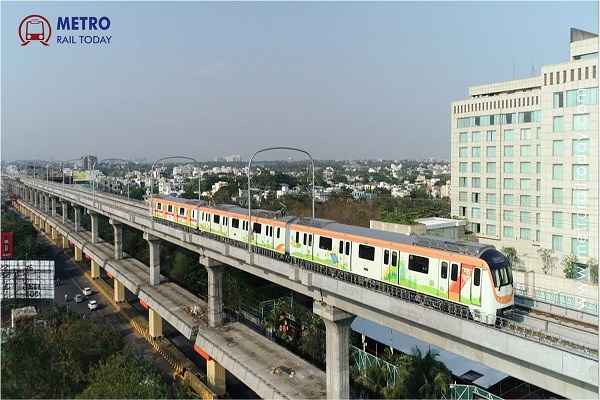 Maha Metro partners with IIT Kanpur to shield Nagpur and Pune Metro Systems from Cyber threats
Maha Metro partners with IIT Kanpur to shield Nagpur and Pune Metro Systems from Cyber threats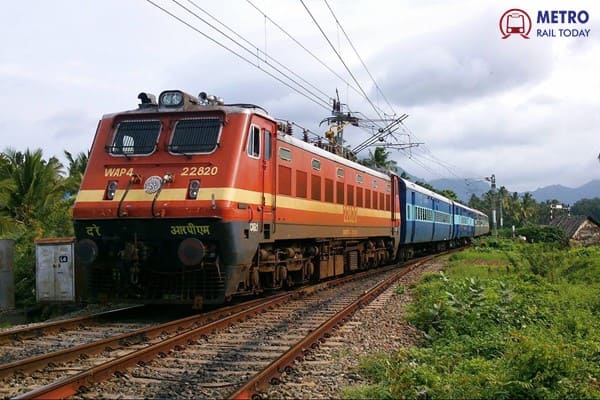 R. Rajagopal appointed as Member (Traction & Rolling Stock), Railway Board, Ministry of Railways
R. Rajagopal appointed as Member (Traction & Rolling Stock), Railway Board, Ministry of Railways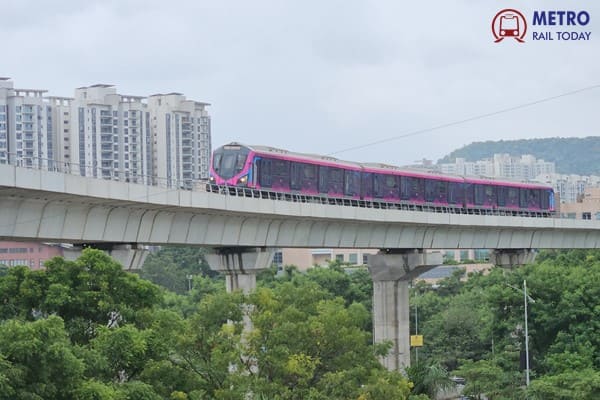 Maha Metro to appoint DPR Consultant for Pune's Shivajinagar-Kondhwa Metro Line
Maha Metro to appoint DPR Consultant for Pune's Shivajinagar-Kondhwa Metro Line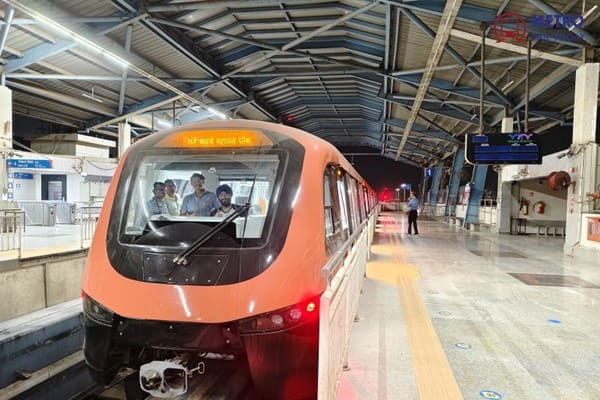 Mumbai Monorail suspension sparks Job Losses and Backlash despite system upgrade plans
Mumbai Monorail suspension sparks Job Losses and Backlash despite system upgrade plans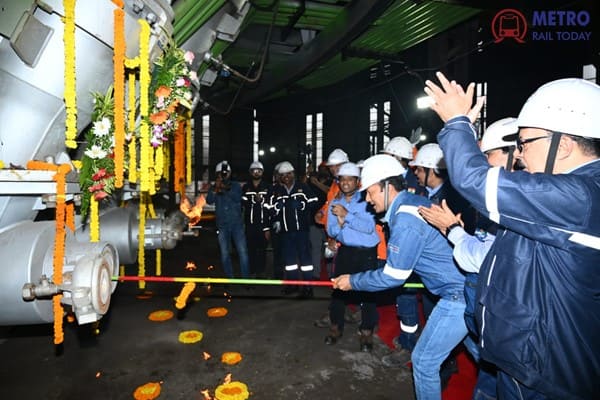 Jindal Steel Commissions One of India’s Largest Blast Furnaces in Odisha
Jindal Steel Commissions One of India’s Largest Blast Furnaces in Odisha
MoU approved for maintenance of 3 priority corridors of Delhi Metro Phase 4
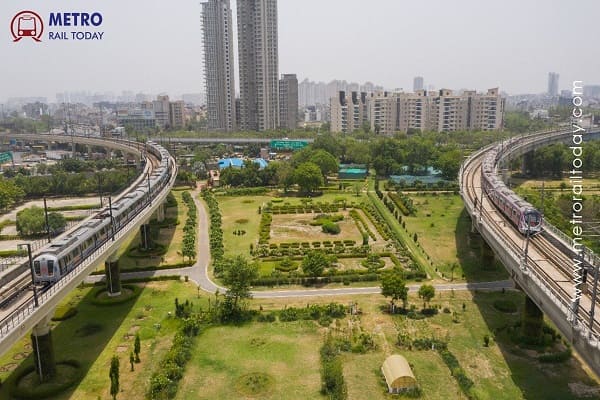
New Delhi, India (Metro Rail Today): The Delhi Chief Minister, Arvind Kejriwal, has given the green light for the signing of a crucial Memorandum of Understanding (MoU) concerning the initiation of construction on the first three metro corridors slated for development under Phase-IV of the Delhi Metro project. This significant development, as conveyed in an official statement issued recently, underscores the commitment of the Delhi government, in collaboration with the Central authorities and the Delhi Metro Rail Corporation (DMRC), towards enhancing the capital's public transportation infrastructure.
The MoU approval comes as a pivotal step towards the advancement of the metro network in Delhi, aiming to alleviate commuting challenges and bolster connectivity across various parts of the city. With a burgeoning population and increasing urbanization, efficient transportation systems are imperative for sustainable development and improved quality of life. The approval of this MoU reaffirms the government's dedication to fulfilling its promise of enhancing public transportation infrastructure, a crucial aspect of urban governance.
The three corridors earmarked for development under Phase IV of the Delhi Metro project encompass strategic routes aimed at addressing key connectivity needs within the capital. These corridors include:
1. Janakpuri West-RK Ashram Marg (28.92 km)
This corridor, extending over a length of 28.92 kilometers, serves as an extension of the existing Magenta Line, linking Janakpuri West to RK Ashram Marg. By extending the metro network along this route, commuters from these areas will benefit from enhanced connectivity, facilitating smoother and faster transit within the city.
2. Majlis Park-Maujpur (12.55 km)
Spanning a distance of 12.55 kilometers, the Majlis Park-Maujpur corridor constitutes an extension of the Pink Line, aiming to connect Majlis Park to Maujpur. This extension is poised to streamline travel for residents along the route, easing congestion on roads and offering a sustainable mode of transportation.
3. Aerocity-Tughlakabad (23.62 km)
The Aerocity-Tughlakabad corridor, covering a distance of 23.62 kilometers, is envisioned as the Golden Line, linking the Violet Line and the Airport Line from their respective ends. This strategic connection holds immense potential in enhancing connectivity to key hubs such as Aerocity and Tughlakabad, catering to the growing transportation needs of residents and commuters.
With the approval of the MoU, the pace of construction on these crucial corridors is expected to escalate significantly. This development underscores the government's proactive approach towards expediting infrastructure projects essential for the city's growth and development. The concerted efforts of all stakeholders, including the Delhi government, the Central authorities, and the DMRC, are aimed at overcoming obstacles and ensuring timely completion of the metro corridors.
While the approval of the MoU marks a significant milestone, efforts are underway to secure clearance for the remaining three corridors pending Central government approval. These corridors, namely Rithala-Bawana-Narela, Inderlok-Indraprastha, and Lajpat Nagar-Saket G Block, hold immense potential in further augmenting Delhi's metro network.
The proposed extension of the Rithala-Bawana-Narela corridor up to Kundli in Haryana underscores the potential for extending metro connectivity beyond Delhi's borders, fostering regional integration and enhancing accessibility for residents in neighboring states.
In line with the MoU provisions, the Delhi government is set to collaborate closely with the DMRC to introduce innovative mobility solutions aimed at enhancing commuter experience and promoting seamless travel across the National Capital Region (NCR). Key highlights of the collaboration include:
-
Integrated Ticketing: Introduction of a common mobility card for integrated ticketing, facilitating seamless travel across all modes of transport within the NCR.
-
Multi-Modal Integration: Facilitating multi-modal integration, including suburban railways, to establish a robust and well-connected transportation network in the region.
-
Traffic Management: Establishment of a traffic information management control center for effective traffic monitoring, enforcement, and data collection to inform future planning initiatives.
The MoU underscores the commitment of the Delhi government towards expeditiously executing the metro projects, ensuring seamless coordination among various agencies and stakeholders. The formation of a high-powered committee (HPC) under the chairmanship of the Chief Secretary further exemplifies the government's resolve to address implementation challenges promptly.
The approval of the MoU for the first three metro corridors under Phase-IV heralds a new era of enhanced connectivity and mobility solutions for Delhi residents. The concerted efforts of the government, in collaboration with the DMRC and Central authorities, underscore a shared commitment towards realizing the vision of a modern, efficient, and sustainable transportation network. As construction progresses on these corridors, Delhi inches closer to realizing its aspirations of becoming a world-class city with a robust and integrated public transportation system.




